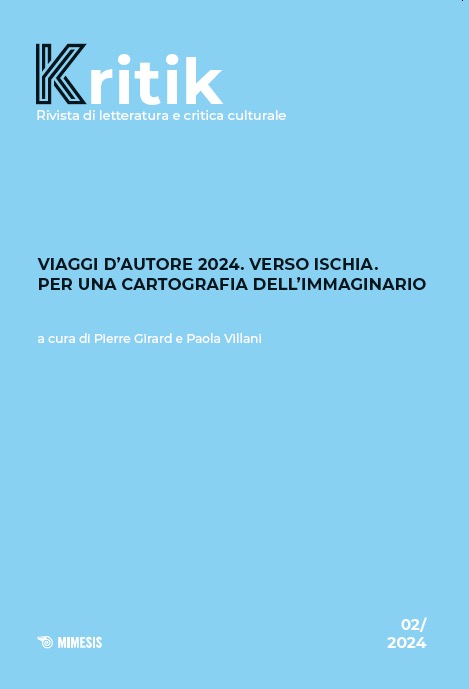Abstract
In 1953 German the composer Hans Werner Henze invited Ingeborg Bachmann, an Austrian writer established on the international literary scene, to the island of Ischia. From an impossible love, an intense poetic-musical partnership was born. Songs of an Island were composed between August and September 1953 in Ischia, in a period that marked a turning point in the poetics of Ingeborg Bachmann, who from this moment began to reflect on the relationship between musical composition and writing. The contribution illustrates through Bachmann‘s Songs that the island in her post-World War II poetry, like literature is a utopia, is a mixture of things past and found, is the hope we shape by adapting our cultural heritage to the needs of the moment to look beyond the present to the unknown future. The island is the utopian motif of Bachmannian lyric poetry, it is Limesgefühl, or sense of the limine of the redeemed word capable of foreshadowing a new world after the war and Shoah. The existence of an island in a never-reassuring sea thus remains perpetually uncertain, it is a negative, unrealizable utopia, but it is also the place from which one can look far, toward a land of choice, it is a passage between the old land and the new.

